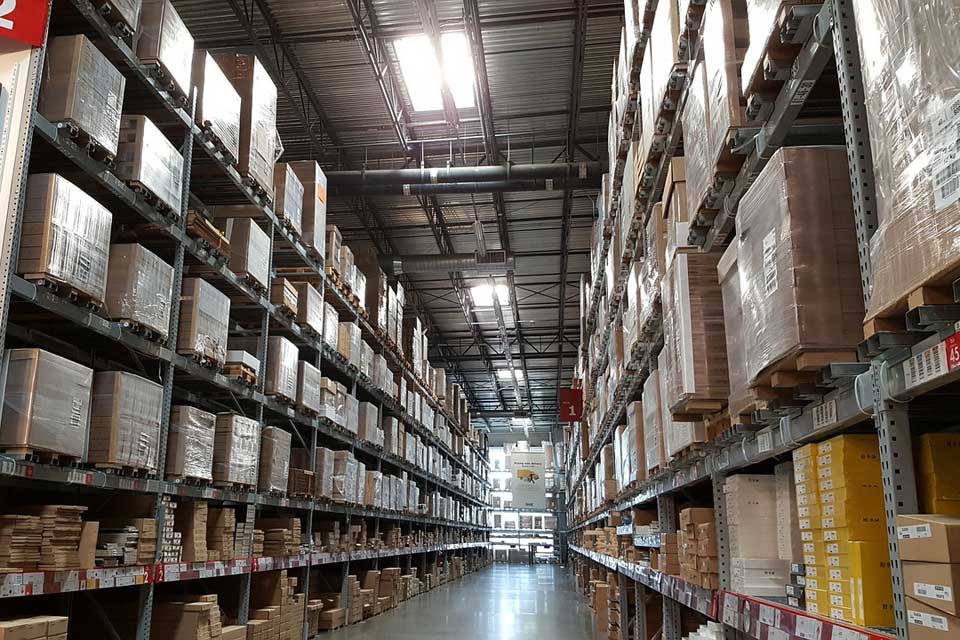Online shopping and omnichannel fulfilment placing new demands on warehouse operations. Fortunately, Warehouse Management Software (WMS) solutions are evolving rapidly, empowering warehouse and supply chain managers to keep pace. Here’s a look at the key recent and future trends shaping the future of warehouse management, based on input from attendees at the Total Supply Chain Summit…
Recent Trends:
- Cloud-based WMS: Cloud-based WMS solutions offer greater accessibility, scalability, and cost-effectiveness compared to traditional on-premise deployments. This allows retailers to access their warehouse data and functionalities from anywhere with an internet connection, facilitating remote management and improved collaboration.
- Enhanced Inventory Management: Advanced WMS solutions provide real-time inventory visibility across the supply chain. This allows for improved forecasting, optimized stock levels, and reduced instances of stockouts or overstocking.
- Integration with E-commerce Platforms: Seamless integration with e-commerce platforms streamlines order fulfilment. WMS can automatically receive orders, allocate stock, and generate picking lists, ensuring faster and more efficient order processing.
- Focus on Automation and Robotics: Warehouse automation is gaining traction with solutions like automated storage and retrieval systems (AS/RS) and robots for picking and packing. This reduces manual labour, improves accuracy and efficiency, and allows staff to focus on higher-value tasks.
Future Trends:
- Artificial Intelligence (AI) and Machine Learning (ML): AI and ML will play a transformative role in WMS solutions. These technologies can analyze historical data, predict demand patterns, and optimize warehouse layout and picking routes for maximum efficiency.
- The Rise of Collaborative Robotics (Cobots): Collaborative robots, or cobots, will work alongside human workers. Cobots can handle repetitive tasks like picking and packing smaller items, while humans oversee complex operations.
- Focus on Warehouse Visibility and Analytics: Real-time data visualization tools will provide deeper insights into warehouse operations, allowing managers to identify bottlenecks, optimize resource allocation, and make data-driven decisions to improve overall performance.
- The Internet of Things (IoT) and Wearable Technology: Integrating with IoT devices and wearable technology can track inventory location, monitor environmental conditions, and provide real-time data on worker activity. This enhances visibility, promotes safety, and optimizes workflows.
- Sustainable Warehousing Practices: WMS solutions will incorporate functionalities to track and manage energy consumption, promote waste reduction, and optimize transportation routes, contributing to a more sustainable logistics network.
Benefits for Retailers:
Implementing these WMS trends offers significant advantages:
- Improved Efficiency and Productivity: Automation, AI-powered optimization, and real-time data can significantly enhance warehouse efficiency and worker productivity.
- Reduced Operational Costs: Optimizing inventory management, picking routes, and resource allocation can minimize waste and operational costs.
- Enhanced Order Fulfilment Speed and Accuracy: Streamlined processes ensure faster order picking, packing, and shipping, leading to improved customer satisfaction and reduced delivery times.
- Increased Inventory Visibility and Control: Real-time data empowers managers to maintain optimal stock levels, minimize stockouts, and improve inventory control.
- Improved Decision-Making: Data-driven insights on warehouse performance enable better forecasting, resource allocation, and strategic decision-making.
The warehouse landscape is transforming, and WMS solutions are at the forefront of this change. By embracing these trends, UK retailers can create smarter, more efficient, and future-proof warehouse operations. This empowers them to meet the demands of the evolving retail sector, deliver excellent customer service, and gain a competitive edge.
Are you looking for Warehouse Management Software solutions for your organisation? The Total Supply Chain Summit can help!
Photo by TheStandingDesk on Unsplash






